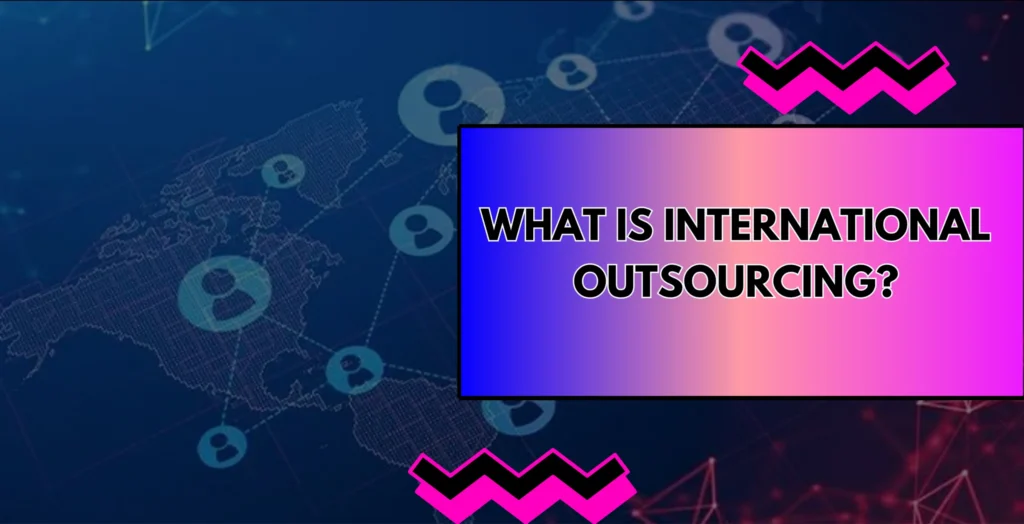When you hear “offshore call center,” you might picture a giant floor of headsets in a faraway time zone… and a customer stuck on hold forever. That’s outdated.
Today’s offshore call centers are smarter, faster, and fully equipped to support fast-growing startups without draining your runway. For early-stage founders juggling growth, retention, and burn rate, offshore support isn’t just a nice-to-have. It’s often the only way to actually deliver 24/7 service without hiring a full U.S. team.
But, (and there’s always a but) offshoring your customer support isn’t a decision you make over lunch. You’ve got to think about the costs, how it affects customer experience, the risks (hello, data security) and most importantly, how to choose a partner that won’t give your brand a bad name
Because, the wrong call center doesn’t just frustrate your customers. It makes your startup look sloppy. At Talent Hackers, we help U.S. startups avoid that mess by matching them with offshore talent, I mean agents who show up like owners, not just ticket-closers.
In this guide, we’ll unpack everything you need to know about offshore call centers: the cost breakdowns, the upsides, the watchouts and how to find a partner that scales with you, not just next to you.
Let’s get into it.
Why Offshore Call Centers Are in Demand
It’s simple, U.S.-based customer support is expensive.
Between salary, benefits, equipment, and overhead, hiring just one full-time rep can cost upwards of $60K a year and that’s before they answer a single ticket. Now imagine building a full support team. For a startup, that kind of spend isn’t just painful, it’s unsustainable.
This is why offshore call centers come handy. They give you access to experienced support agents in countries with lower labor costs. Think of places like the Philippines, Nigeria, Colombia, etc, without sacrificing quality. In fact, many of these agents are more qualified and more tech-savvy than their domestic counterparts. But, it’s not just about cutting costs.
This is why more startups are making the shift;
- 24/7 coverage: Different time zones = global support around the clock.
- Scalability: Add reps fast without worrying about desk space or equipment.
- Focus: Free up your core team to focus on product and growth.
- Multilingual support: Serve customers in multiple languages without hiring in-house translators.
Done right, offshore support becomes a growth engine, not a cost center.
Common Services Offered by Offshore Call Centers
Offshore call centers aren’t just for picking up phones anymore. The best ones operate like an extension of your in-house team handling customer issues, solving technical problems, and even helping close sales while you sleep.
Here’s a quick look at what offshore call centers typically offer:
- Inbound Support: Think customer service, order tracking, refunds, product issues. These are the agents helping your users stay loyal, even when things go wrong.
- Outbound Calling: Appointment setting, cold calls, renewals, feedback collection. Not every startup needs this, but if growth is the goal, it’s nice to have that firepower on standby.
- Technical Support: Have a SaaS product or anything remotely digital? Offshore teams can provide tier 1 or even tier 2 tech support with proper onboarding and documentation.
- Live Chat & Email Management: Perfect for startups that can’t afford to let DMs, tickets, or “Where’s my order?” emails pile up.
- Multilingual Support: Want to sell beyond the U.S.? Offshore teams often come equipped with native or fluent speakers in Spanish, French, German, and more.
Finding a partner who doesn’t just offer these services, but delivers them with the kind of clarity, tone, and speed your brand deserves is the key.
Benefits of Offshore Call Centers
Yes, offshore call centers save money. But if that’s the only reason you’re considering them, you’re missing the bigger picture. Startups that win with offshore support aren’t just trimming costs. They’re building lean, responsive, global operations that can scale fast, stay flexible, and keep customers happy around the clock.
Here’s what the smartest founders are really getting from offshore call centers:
1. Saving Cost Without Sacrificing Quality
According to Glassdoor, the average U.S.-based customer service rep earns about $3,500–$5,000/month, excluding benefits, equipment, and onboarding costs. By contrast, offshore reps with the same experience and English fluency often cost $900–$1,500/month depending on location and expertise.
That’s a 60–80% savings without compromising on performance and no, these aren’t undertrained agents. Many offshore professionals come with years of experience working for global companies and are already fluent in tools like Zendesk, Intercom, Gorgias, or Freshdesk. For startups trying to extend their runway and stay lean, that difference is game-changing.
2. 24/7 Customer Support
Customers don’t wait for your business hours. They expect fast, human help whether it’s 10am in New York or 2am in California. Offshore call centers give you that always-on support by working from different time zones. Instead of paying triple-time for night shifts in the U.S., you can build a follow-the-sun model with trained offshore reps who handle:
- After-hours ticket volume
- Urgent escalations
- International customer queries
This is providing a global-level customer experience without building a global payroll.
3. Flexible, Fast Scaling—Up or Down
Need 3 agents this week and 10 by next quarter? Offshore call centers are built for elasticity. You can scale your support team up or down as your needs evolve without having to worry about desk space, local compliance, or long-term contracts. This is especially useful for:
- Startups in post-launch growth mode.
- Companies navigating seasonal spikes (e.g., holiday sales, product launches).
- Businesses experimenting with new service channels (chat, email, voice).
Instead of committing to full-time domestic hires, offshore gives you flexibility without friction.
4. Access to Skilled, Global Talent Pools
Offshore doesn’t mean “less qualified.” In fact, many offshore markets specialize in customer support and BPO (Business Process Outsourcing).
For example:
- The Philippines has over 1.3 million BPO employees and is known for strong English fluency, empathy, and hospitality-driven service.
- Nigeria is rapidly emerging as a tech-forward outsourcing hub with a highly educated, youthful workforce trained in both customer service and digital tools.
- South Africa and Kenya are also gaining traction for multilingual support, strong infrastructure, and cultural familiarity with Western markets.
These are not just “support agents.” They’re professionals who understand tone, urgency, and customer satisfaction. At Talent Hackers, we handpick from these exact talent pools, screening for both skill and startup mindset.
5. High-Quality CX Without In-House Headaches
Managing an in-house support team is time-consuming. You need: Recruiting, onboarding, training, performance reviews, scheduling and contingency plans for when someone’s sick or quits. Offshore call centers take all of that off your plate. They handle the team, the tech, and the day-to-day operations. You just focus on defining the service quality and brand experience you want and let them deliver it. With the right offshore partner, your customers shouldn’t even realize they’re being supported from abroad. It should feel seamless, consistent, and human.
6. More Time for You and Your Core Team to Focus on Growth
Founders shouldn’t be replying to refund emails at midnight and product teams shouldn’t be distracted by a flood of “my login doesn’t work” tickets. By offloading repetitive or time-sensitive support tasks, your in-house team stays focused on:
- Building better features
- Closing strategic deals
- Fixing core product issues
- Growing the company
Startups that treat support like a growth engine not just a cost center tend to scale faster and burn out less.
5 Challenges and Risks to Consider
Offshore call centers can be a major turning point but they’re not without trade-offs. Just like hiring locally, not every rep is a gem. And when you’re supporting customers from halfway across the world, the cracks can show fast if you don’t do it right.
Here are the biggest challenges founders need to keep in mind:
-
Language and Cultural Gaps
Even when agents speak fluent English, tone, nuance, and phrasing are very important. “Let me assist you henceforth” might sound perfectly professional to some, but to your users? It could come off as robotic or confusing.
It’s not just grammar but cultural alignment. The best offshore reps understand how your customers speak, what annoys them, and what earns trust fast.
-
Time Zone Misalignment (If Poorly Managed)
Yes, time zones are a strength but only if you plan for them. Without the right shift coverage, overlapping hours, or async communication workflows, you risk dropped tickets, delayed escalations, or “we’ll get back to you tomorrow” becoming the norm.
The fix is to build clear processes, set expectations around SLAs and work with a partner that knows how to structure follow-the-sun support properly.
-
Data Security and Compliance
This is a big one. If your offshore call center isn’t handling customer data securely or worse, isn’t compliant with privacy laws like GDPR, CCPA, or HIPAA, you’re the one on the hook. Startups dealing with personal or financial data must:
- Use NDAs and role-based access controls.
- Ensure proper data handling protocols.
- Confirm the center is trained on U.S. compliance standards.
-
Lack of Ownership from Agents
Some offshore agents are there to follow scripts and clock out and that’s not what your startup needs. You need reps who think like team members, not task-takers. People who spot patterns, flag bugs, and genuinely care if a customer churns. That’s the danger of traditional BPO firms, they staff fast, but they don’t staff smart.
Talent Hackers was built to solve this exact issue: we don’t place agents who only want to “handle calls.” We place talent who take responsibility like it’s their name on the cap table.
- Vendor Fit and Oversight
Not all offshore call centers are created equal. While some are glorified temp agencies, others bury you in 50-page contracts, overpromise on quality, then underdeliver on everything else. When the fit is wrong, your customers feel it fast. That’s why finding the right partner matters just as much as hiring the right talent. A good vendor agency should;
- Understand your industry
- Customize their approach to your workflow
- Provide real visibility into performance
- Help with onboarding, not just staffing
The point isn’t to scare you off, just to help you go in clear-eyed. Because when you address these risks upfront, offshore support becomes a growth asset, not a liability.
How to Choose the Right Offshore Call Center
So you’re sold on the benefits, and you’re aware of the risks. Now comes the hardest part: choosing a partner who won’t make you regret offshoring in the first place. Because most agencies won’t tell you offshore support is only as good as the people and processes behind it.
Here’s how to make sure you’re picking the right one:
1. Look for Startup-Relevant Experience
Running support for a Fortune 500 company is very different from running it for a 6-person startup. You need people who:
- Can operate without layers of management.
- Adapt quickly to new tools or workflows.
- Understand the urgency that comes with shipping fast and fixing faster.
Ask for examples of other startups they’ve worked with or better yet, founders you can speak to.
2. Assess Communication and Tone Matching
Your support team speaks on your behalf literally. So while fluency in English is a given, what really matters is tone. Do they understand when to be casual vs formal? Can they stay calm when a customer’s clearly not? Can they write a great email without sounding like a robot? Most of this you’ll catch in early conversations or sample responses. If it feels off, it probably is.
3. Demand Transparency in Pricing and Performance
Avoid vague promises like “dedicated team” or “full-time coverage” without clarity on:
- Hours and shift patterns
- Replacement policies
- Escalation workflows
- Performance metrics (and who tracks them)
Ask: What am I actually paying for? If you’re not sure, don’t sign.
4. Prioritize Data Protection and Compliance
If the agency doesn’t mention compliance until you do… run. Any offshore partner worth working with should already be thinking about:
- GDPR, HIPAA, CCPA (depending on your industry)
- NDAs and secure access protocols
- Role-based permissions for tools and CRMs
- Regular security audits and internal training
5. Start Small, but Build for Long-Term Fit
Avoid overcommitting upfront. Start with a small team or pilot project. See how they handle onboarding, training, and feedback. The goal isn’t perfection, it’s responsiveness and adaptability. If they can’t improve after your first round of feedback, they won’t improve in month three either.
Choosing the right offshore call center isn’t about picking the cheapest option or the biggest firm but finding a partner that grows with your business, protects your customers, and actually makes your life easier.
If that’s what you’re looking for, let’s talk.
Offshore Call Centers vs Onshore/Nearshore: Which Is Best for You?
Not all outsourcing is created equal. If you’ve been researching support solutions, you’ve probably seen the terms offshore, nearshore, and onshore tossed around like interchangeable buzzwords. They’re not and the difference can seriously impact your costs, customer experience, and flexibility.
Let’s break it down:
What Do These Terms Actually Mean?
| Model | Definition |
|---|---|
|
Call centre is located in your own country (e.g.m U.S.-based team for a U.S startup) |
|
Located in a nearby country or time zone (e.g., Mexico or Colombia for U.S. companies) |
|
Located in a distant country, often with major time zone differences (e.d., Nigeria, Philippines, India) |
What Are The Pros and Cons at a Glance
| Model | Pros | Cons |
|---|---|---|
|
Cultural alignment, same time zone, strong compliance | Most expensive, limited talent pool |
|
Closer time zones, some cost savings, similar culture | Mid-range pricing, smaller scale vs offshore options |
|
Biggest cost savings, 24/7 coverage, global talent | Time zone challenges, more training for tone/culture |
If you’re a large enterprise with complex compliance needs and a massive support budget, onshore might make sense.
If you want lower costs with better time zone alignment for your U.S. team, nearshore is a solid middle ground. But if you’re a startup looking to:
- Hire fast without blowing your budget.
- Build a lean, global support system.
- Cover customers across multiple time zones.
- Get access to experienced, tech-ready talent.
Then offshore is likely your best bet. Especially when you’re working with a partner that doesn’t just hand you a team but helps you integrate them into your business like they were hired in-house.
That’s exactly what we do at Talent Hackers.
We don’t just help you decide between offshore and nearshore, we help you find your fit. The right people, right processes and a support system that makes you look way bigger than you are
Whether you’re trying to cover nights and weekends, expand into new markets, or just deliver better service without bloating your burn rate, we’ll help you build the support team your startup actually needs.
Ready to scale your support without scaling your payroll? Let’s make it happen.
Hire Global. Pay Smart. Stay Compliant.
Stop stressing over currency conversions, tax risks, and delayed payments. Let’s help you handle your offshore payroll—securely, legally, and on time.









